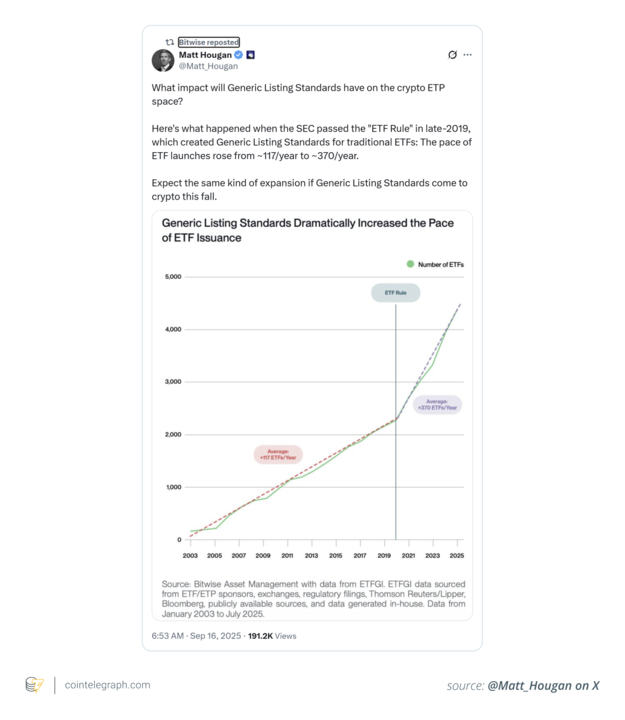
Navigating the Regulatory Landscape: SEC Updates for Crypto ETFs
The cryptocurrency market is eagerly anticipating the launch of new Exchange Traded Funds (ETFs), but the regulatory hurdles have often presented significant delays. Recent guidance from the U.S. Securities and Exchange Commission (SEC) aims to streamline the approval process for these products, potentially speeding up their introduction to the market. This development comes after a period of operational stagnation due to a government shutdown, which created a substantial backlog of ETF filings.

The Shutdown’s Impact and the Rise of Section 8(a)
The recent government shutdown brought much of the SEC‘s operations to a standstill, leaving over 900 registration filings in limbo. This forced issuers to explore alternative pathways to approval. One such mechanism, Section 8(a) of the Securities Act of 1933, allows filings to become automatically effective after 20 days if the SEC doesn’t intervene. This process provided a temporary solution, notably facilitating the launch of certain funds, but also highlighted the need for a more structured approach.
New SEC Guidance: A Path to Faster Approvals
In response to the backlog, the SEC issued new guidelines to clarify how issuers can advance their ETF applications. These updates offer a dual approach. First, filings submitted without a delay-in-time clause can still gain automatic effectiveness after the standard 20-day period under Section 8(a). Second, the SEC clarified the possibility of accelerating the process under Rule 461. Issuers now have the option to amend their filings and request accelerated effectiveness, allowing for a potentially faster launch timeline.
Generic Listing Standards: Streamlining the Process Further
Adding to the momentum, the SEC approved generic listing standards for commodity-based trust shares. This removed the need for individual approvals under Section 19(b) for many crypto ETFs. This crucial step eliminates a significant bottleneck, allowing issuers to focus on meeting the requirements of the new, faster-paced process.
Implications for Crypto ETF Issuers
The new guidance, particularly when combined with the generic listing standards, offers a more predictable route for crypto ETF issuers. This streamlining allows managers to target specific launch windows with greater certainty. However, it’s essential to recognize that while the approval process may be quicker, the underlying standards for investor protection remain stringent.
Speed Doesn’t Mean Less Responsibility
It’s crucial to understand that faster approval timelines do not alleviate the legal responsibilities of ETF issuers. The SEC emphasizes that all registration statements, including those that become effective automatically, are subject to the liability and anti-fraud provisions of federal securities laws. The issuer is ultimately responsible for the accuracy of their filings. The issuer’s thoroughness is critical because if the prospectus is misleading, the issuer is liable.
Looking Ahead
The SEC’s recent guidance represents a positive step toward clarifying and accelerating the approval process for crypto ETFs. By leveraging mechanisms like Section 8(a) and Rule 461, combined with the new generic listing standards, issuers have a more defined and potentially expedited path to market. While increased speed is welcome, the emphasis on regulatory compliance and investor protection remains paramount, ensuring the long-term stability and credibility of the crypto ETF market.


